
De Panne: A Coastal Gem in Belgium
Nestled on the North Sea coast, De Panne is a charming resort town known for its stunning sandy beaches and natural beauty. The expansive shoreline is perfect for sunbathing, beach sports, and leisurely strolls along the waterfront. The town's beach is one of the widest in Belgium, offering plenty of space for everyone to enjoy the sea breeze and scenic views. De Panne is also famous for its unique dune landscapes, which are part of the Westhoek Nature Reserve. This area is a haven for nature lovers, with numerous walking and cycling trails that wind through diverse flora and fauna. Birdwatchers, in particular, will find the reserve a paradise, with many species of birds nesting in the dunes and wetland areas. For families, De Panne boasts the popular theme park Plopsaland, which offers a variety of rides and attractions for children and adults alike. The town itself has a quaint, laid-back atmosphere, with charming cafes, local shops, and seafood restaurants serving fresh catches of the day. Historical landmarks, such as the Saint Peter and Saint Paul Church, add a touch of culture and history to your visit. Whether you're looking to relax on the beach, explore natural landscapes, or enjoy family-friendly attractions, De Panne has something to offer for every type of traveler.
Local tips in De Panne
- Visit the beach early in the morning to avoid crowds and enjoy a peaceful experience.
- If you plan to visit Plopsaland, buy tickets online in advance to skip the lines.
- Rent a bike to explore the Westhoek Nature Reserve; it's the best way to see the diverse landscapes.
- Try the local seafood dishes at one of the beachfront restaurants for a true taste of De Panne.
- Check the tide schedules if you plan to walk far out onto the sand flats.
De Panne: A Coastal Gem in Belgium
Nestled on the North Sea coast, De Panne is a charming resort town known for its stunning sandy beaches and natural beauty. The expansive shoreline is perfect for sunbathing, beach sports, and leisurely strolls along the waterfront. The town's beach is one of the widest in Belgium, offering plenty of space for everyone to enjoy the sea breeze and scenic views. De Panne is also famous for its unique dune landscapes, which are part of the Westhoek Nature Reserve. This area is a haven for nature lovers, with numerous walking and cycling trails that wind through diverse flora and fauna. Birdwatchers, in particular, will find the reserve a paradise, with many species of birds nesting in the dunes and wetland areas. For families, De Panne boasts the popular theme park Plopsaland, which offers a variety of rides and attractions for children and adults alike. The town itself has a quaint, laid-back atmosphere, with charming cafes, local shops, and seafood restaurants serving fresh catches of the day. Historical landmarks, such as the Saint Peter and Saint Paul Church, add a touch of culture and history to your visit. Whether you're looking to relax on the beach, explore natural landscapes, or enjoy family-friendly attractions, De Panne has something to offer for every type of traveler.
When is the best time to go to De Panne?
Iconic landmarks you can’t miss
Plopsaland De Panne
Experience the magic of Plopsaland De Panne, Belgium's vibrant theme park filled with thrilling rides, beloved characters, and unforgettable family fun.
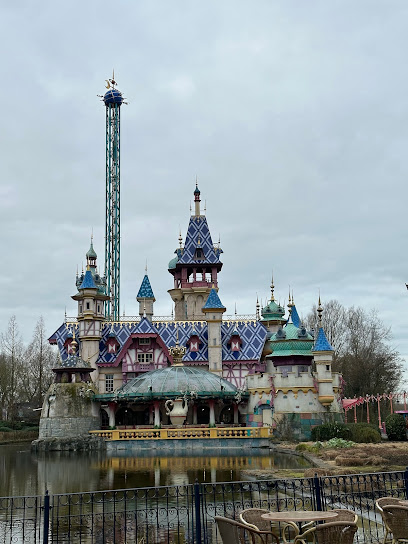
Nature Reserve of Westhoek
Discover Flanders' oldest dune landscape at Westhoek Nature Reserve in De Panne: Hike scenic trails, spot diverse wildlife, and enjoy coastal beauty.
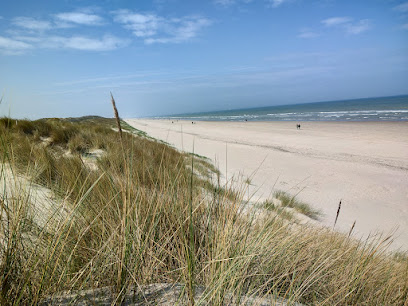
Provinciaal bezoekerscentrum Duinpanne
Explore the natural wonders of De Panne at this informative visitor center, offering interactive exhibits, scenic trails, and insights into coastal ecosystems.
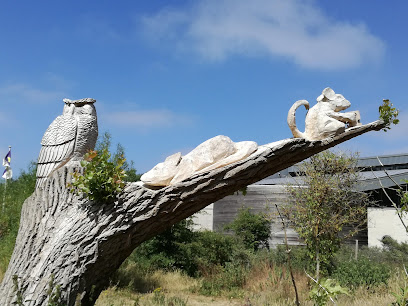
Pier Kloeffe
Explore Pier Kloeffe in De Panne, a stunning coastal pier offering breathtaking views, delightful eateries, and a vibrant atmosphere perfect for every tourist.
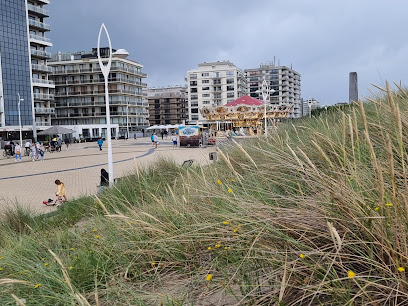
Museum Cabour Adinkerke
Explore WWII history at Museum Cabour in De Panne: artifacts, stories, and insights into the Westhoek region's wartime experience.
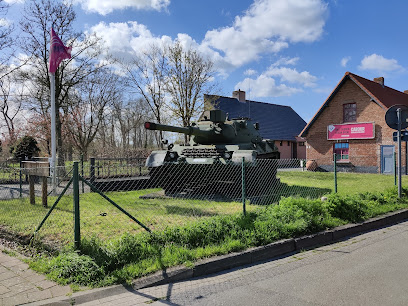
TTO Noordzee
Explore the rich heritage of rail travel at TTO Noordzee, a captivating rail museum in De Panne, Belgium.
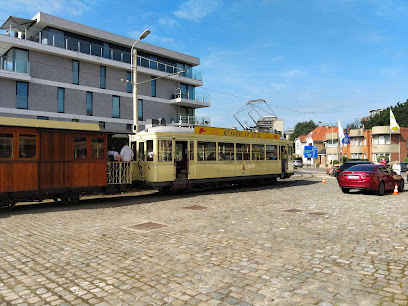
Monument aan Leopold I
Commemorating the arrival of Belgium's first king, Leopold I, this monument marks a significant moment in the nation's history in De Panne.
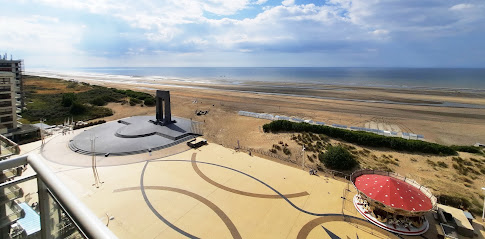
La Panne / De Panne
Explore La Panne, Belgium's enchanting coastal town known for its stunning beaches, vibrant culture, and seamless transit connections to nearby attractions.
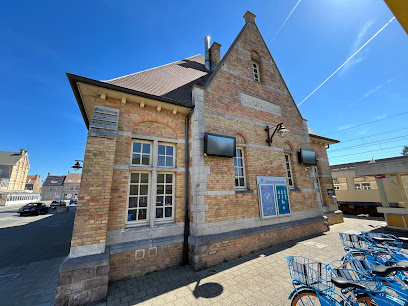
Westerpunt De Panne
Discover the breathtaking views and vibrant atmosphere at Westerpunt De Panne, the perfect coastal escape in Belgium.
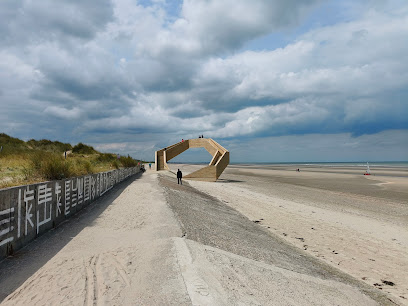
Tourism De Panne
Experience the best of Belgian coastal charm in De Panne, where sandy beaches meet vibrant culture and endless adventures await.
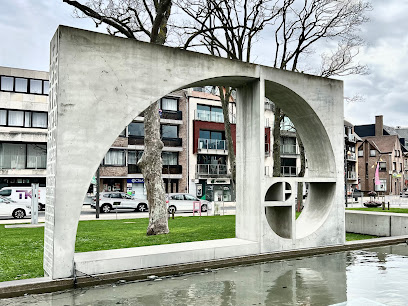
Oosthoekduinen
Discover the beauty of Oosthoekduinen, a tranquil nature preserve in De Panne, perfect for hiking, picnicking, and experiencing diverse wildlife.
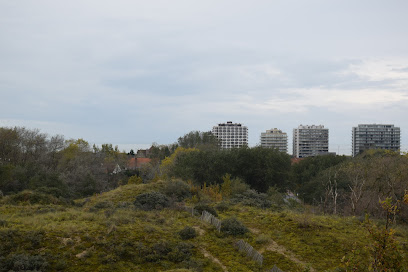
Beaufort Beeldenpark: De Drie Wijsneuzen - Harald Thys & Jos de Gruyter
Explore Beaufort Beeldenpark in De Panne, Belgium, home to thought-provoking sculptures and beautiful landscapes, perfect for art lovers and nature enthusiasts.
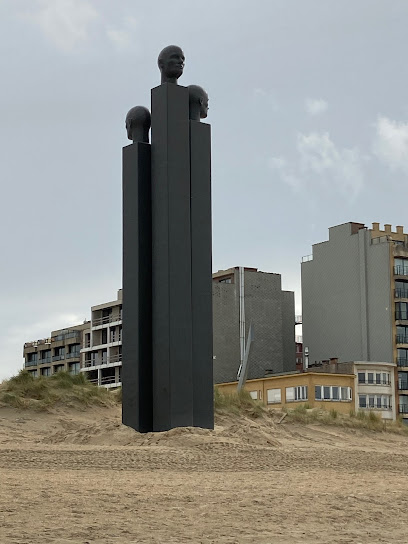
De Panne Kerk
Discover the charm of De Panne from the Tram Stop at De Panne Kerk, your gateway to beautiful beaches and local delights.
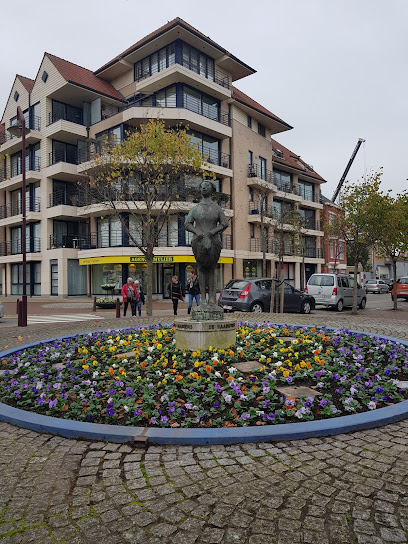
Monument der geallieerden
A historical landmark in De Panne honoring the Allied forces and King Leopold I, offering a place for reflection and coastal walks.
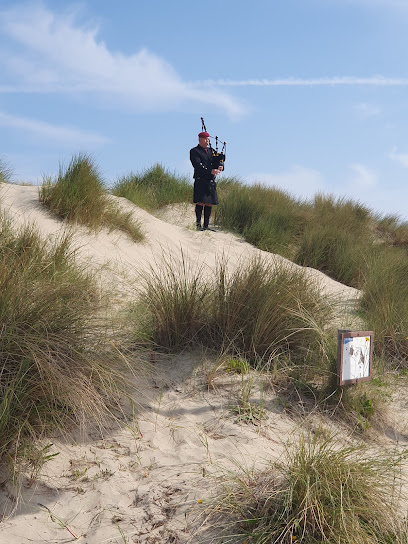
Beaufort beeldenpark: Christophorus - Gerhard Lentink
Discover 'Christophorus' in De Panne's Beaufort Beeldenpark: a monumental sculpture blending art and coastal beauty in a unique open-air setting.
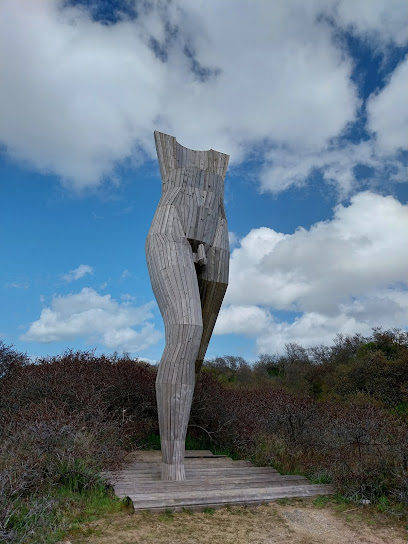
Unmissable attractions to see
Plopsaland De Panne
Experience the joy of family fun at Plopsaland De Panne, Belgium's enchanting amusement park filled with thrilling rides, live shows, and beloved characters.
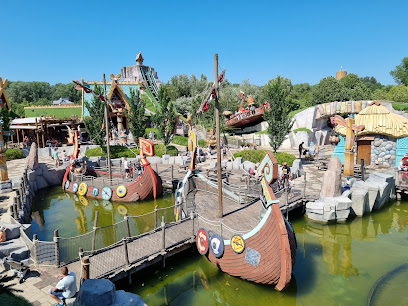
De Garre
Discover De Garre, Bruges' best kept secret: a cozy, historic bar with over 200 beers and the potent Tripel van De Garre.
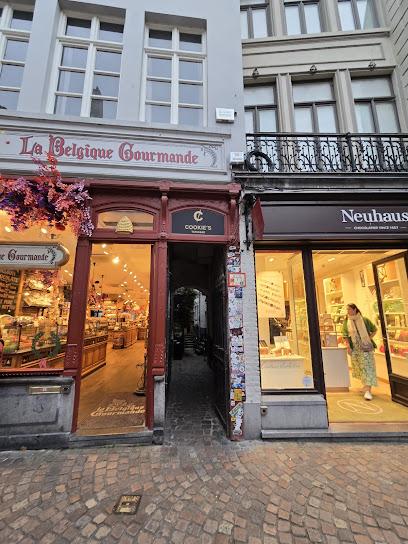
Plopsaqua De Panne
Explore the excitement of Plopsaqua De Panne, where thrilling water slides and family fun await in a vibrant setting.
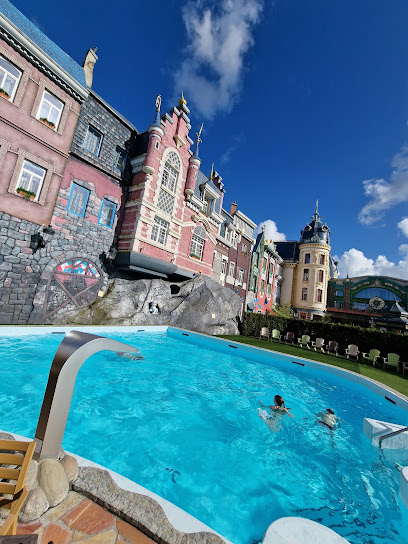
Nature Reserve of Westhoek
Experience the natural beauty of the Nature Reserve of Westhoek, a tranquil haven featuring stunning dunes and diverse wildlife, perfect for nature lovers and explorers.
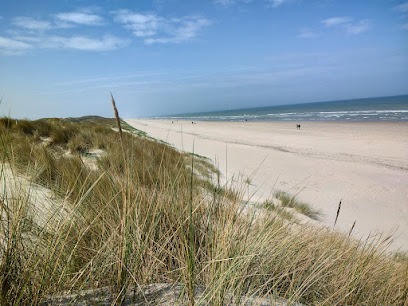
Huisje van Majutte
Discover Blankenberge's maritime past at this charming 18th-century fisherman's cottage, now a museum and pub, offering a unique cultural experience.
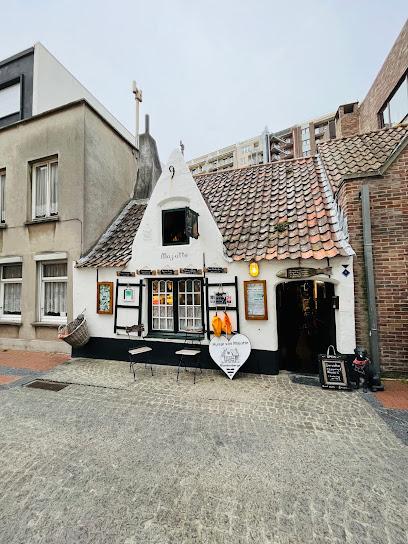
The Monk
Experience the vibrant sports scene in Bruges at The Monk, a lively bar with screens, pool tables, and a great selection of local beers and cocktails.
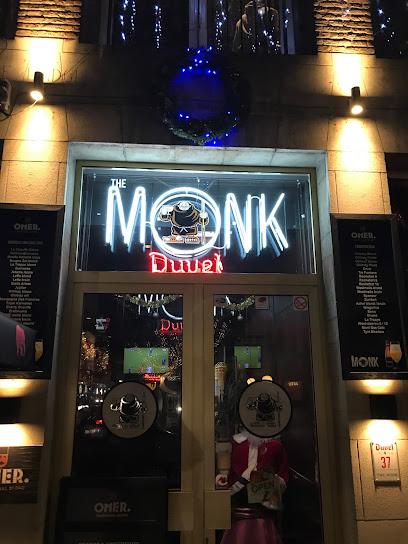
Castle Loppem
Explore the stunning Castle Loppem, a historical gem in Zedelgem, surrounded by beautiful gardens and scenic hiking trails.
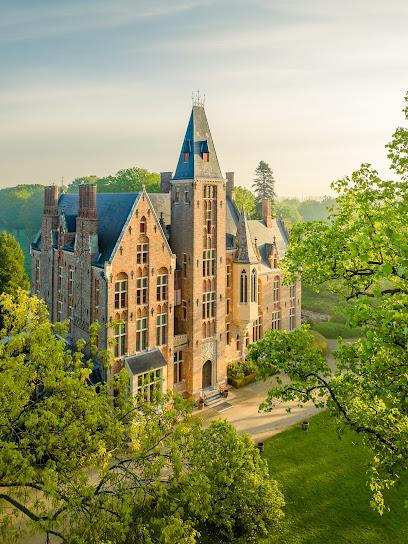
Groot Vlaenderen
Discover Groot Vlaenderen, Bruges' premier cocktail bar, offering expertly crafted drinks in a vibrant and stylish setting, perfect for every occasion.
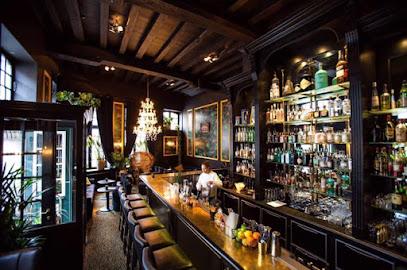
Mayaland
Explore Mayaland in De Panne, a family-friendly amusement park filled with thrilling rides, enchanting playgrounds, and unforgettable entertainment.
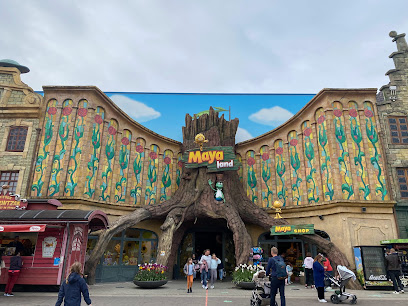
Provinciaal bezoekerscentrum Duinpanne
Explore the breathtaking landscapes and rich biodiversity at Provinciaal Bezoekerscentrum Duinpanne, a must-visit destination in De Panne.
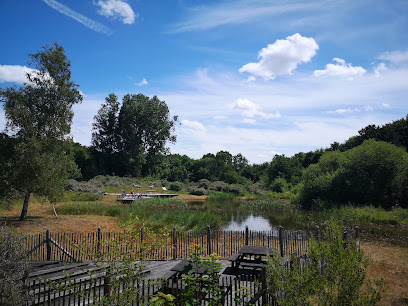
Saint-Éloi Belfry of Dunkirk
Experience the stunning views and rich history at the Saint-Éloi Belfry, a UNESCO World Heritage site in Dunkirk.
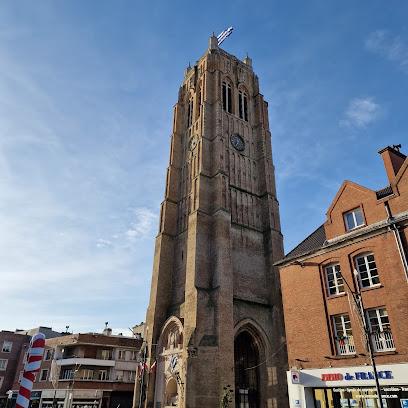
Pier Kloeffe
Enjoy breathtaking coastal views and a refreshing sea breeze at Pier Kloeffe, De Panne's iconic beachside landmark.
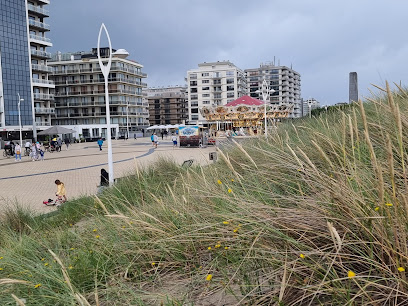
Dunkirk Tourist Office
Unveil the charm of Dunkirk at the Tourist Office – your gateway to exploring history, culture, and stunning coastal beauty.

Calmeynbos
Explore the enchanting Calmeynbos national forest in De Panne, Belgium, a paradise for nature lovers and outdoor adventurers with scenic trails and diverse wildlife.
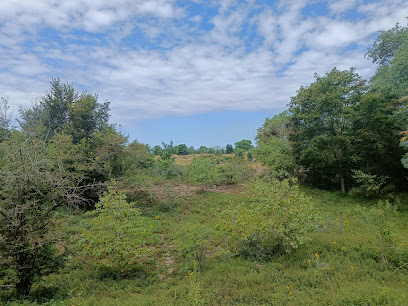
Provincial Court
Explore the stunning Provincial Court in Bruges, a neo-Gothic masterpiece surrounded by vibrant culture and history.
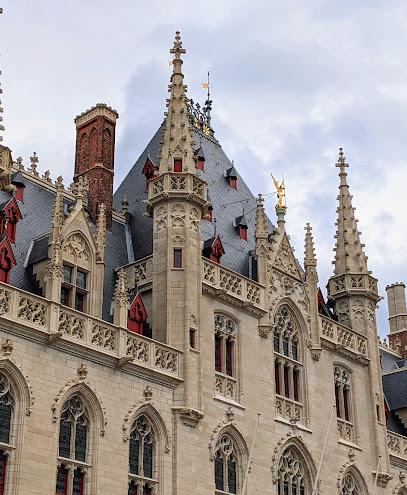
Essential places to dine
Leopold 1 Brasserie Restaurant
Discover the authentic taste of Belgium at Leopold 1 Brasserie Restaurant in De Panne - where tradition meets modern culinary artistry.
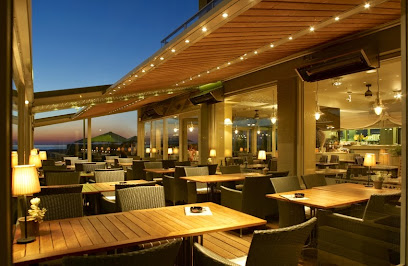
Aux Caves D'artois
Discover culinary excellence at Aux Caves D'artois in De Panne – where traditional Belgian flavors meet modern dining.
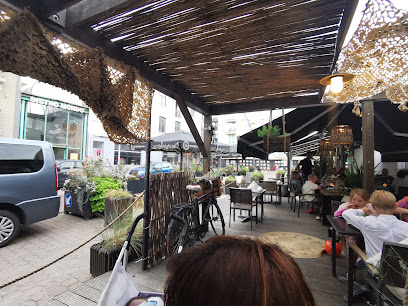
Mirage
Discover Mirage in De Panne: Where Authentic Belgian Cuisine Meets Vibrant Atmosphere.
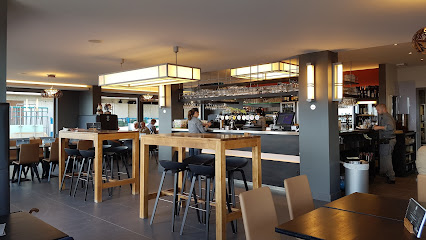
Moeder Lambik
Experience authentic Belgian cuisine at Moeder Lambik - where tradition meets flavor in De Panne.
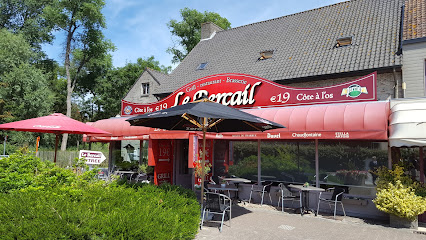
't Zeiltje
Discover the culinary delights at 't Zeiltje in De Panne—where local flavors meet a cozy ambiance for an unforgettable dining experience.
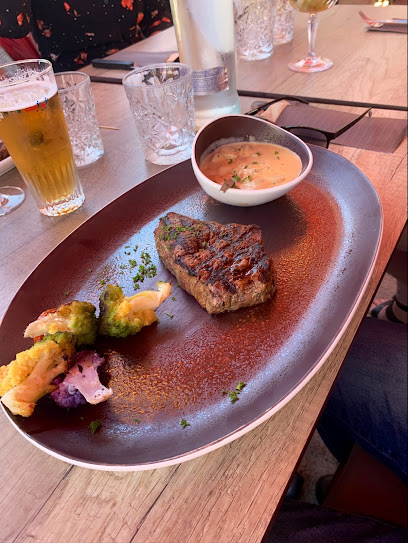
De WitteBerg
Experience delectable Belgian cuisine with stunning sea views at De WitteBerg, a culinary gem on Zeedijk in De Panne.
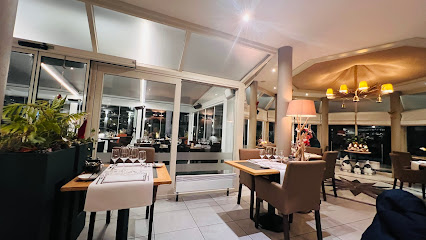
Pammier
Experience authentic Belgian cuisine at Pammier in De Panne, where fresh ingredients meet warm hospitality.
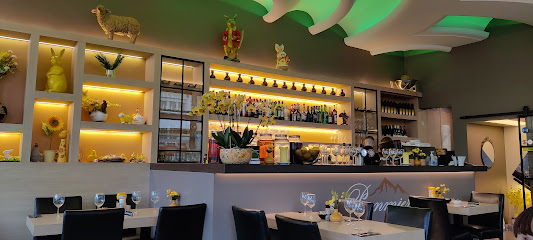
Restaurant De Sloepe
Discover authentic Belgian flavors at Restaurant De Sloepe in De Panne – where every meal tells a story.
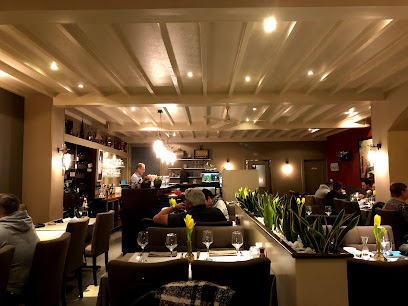
't Zonneke
Discover authentic Belgian cuisine at 't Zonneke in De Panne – where every dish tells a story!
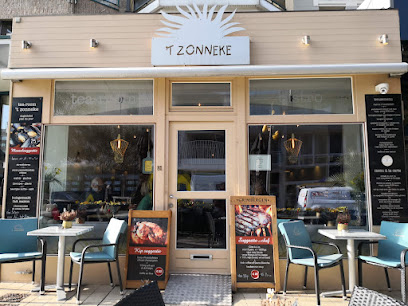
La Furnoise
Experience authentic Belgian cuisine at La Furnoise in De Panne – a delightful restaurant offering fresh flavors and warm hospitality.
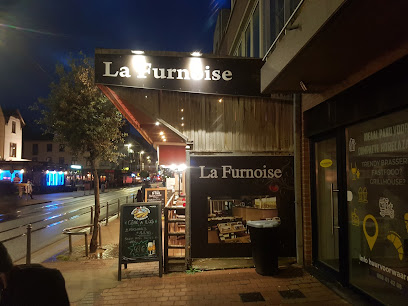
Casa Nostra
Discover authentic Italian cuisine at Casa Nostra in De Panne – where every meal is a celebration of flavor and tradition.
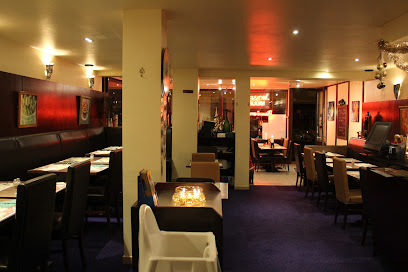
Milord
Experience the best of Belgian cuisine at Milord in De Panne - where local flavors meet culinary excellence.
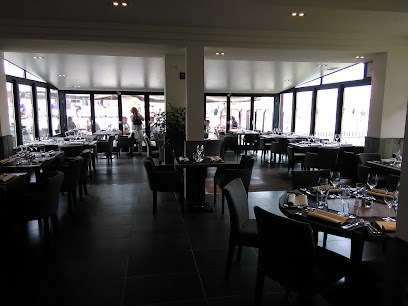
Kursaal
Discover Kursaal in De Panne: A must-visit Belgian restaurant offering exquisite dishes and stunning beach views.
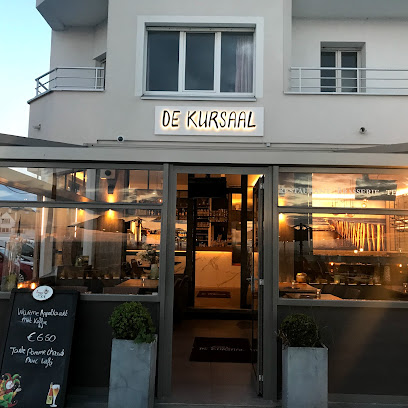
La Goulue
Experience exquisite seafood cuisine at La Goulue in De Panne – where every dish tells a story of flavor and tradition.
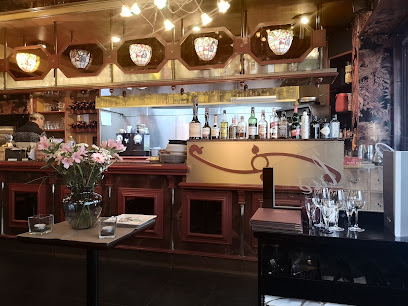
Colosseo
Experience authentic Italian flavors at Colosseo in De Panne - where every meal is a celebration by the sea.
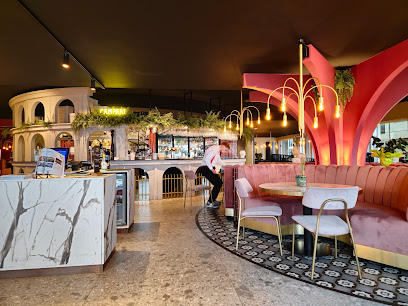
Markets, malls and hidden boutiques
HEMA
Explore HEMA in De Panne for an extensive selection of gifts, clothing, and home essentials, perfect for all your shopping needs while visiting Belgium.
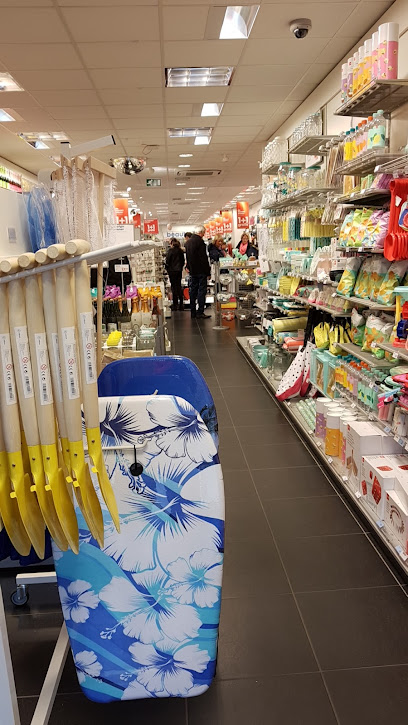
CASA De Panne
Explore CASA De Panne for unique gifts, stylish furniture, and delightful kitchen supplies in the heart of De Panne, Belgium.
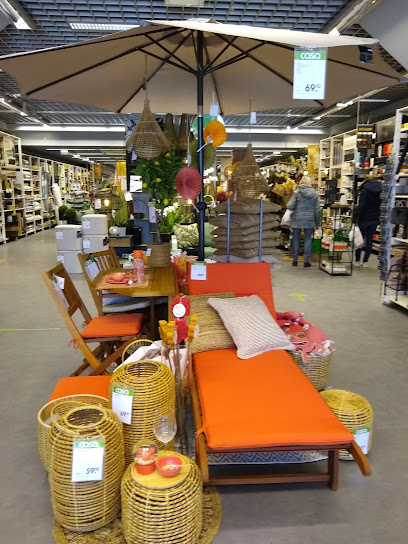
TAKKO FASHION De Panne
Discover the latest fashion trends at TAKKO FASHION De Panne, where style meets affordability for the whole family.
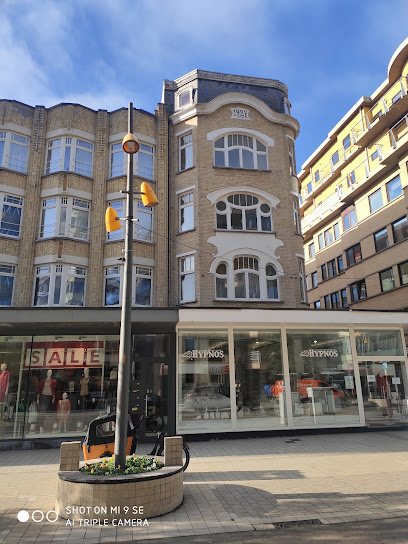
Toyland
Explore Toyland in De Panne: A whimsical toy store and collectibles haven for families and enthusiasts alike.
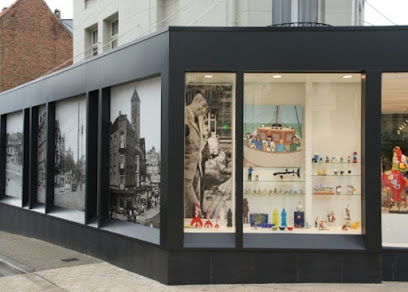
Alfons Koffie & Clothes
Discover stylish clothing and gourmet coffee at Alfons Koffie & Clothes in De Panne, Belgium - a must-visit destination for fashion and coffee lovers.
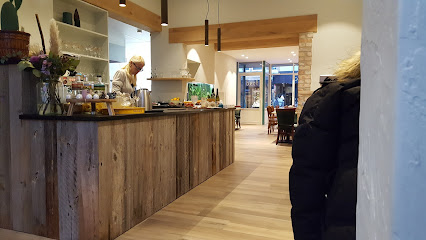
Veritas - De Panne
Explore Veritas in De Panne for an amazing selection of fashion accessories, children's clothing, and crafting supplies that inspire creativity!
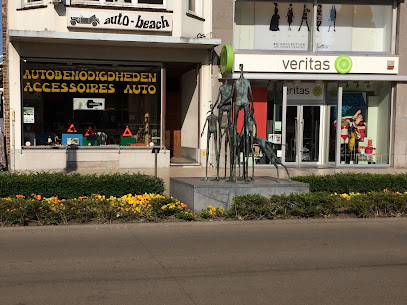
PIMKIE
Discover the latest women's fashion and accessories at PIMKIE in De Panne, where style meets affordability in a vibrant shopping atmosphere.
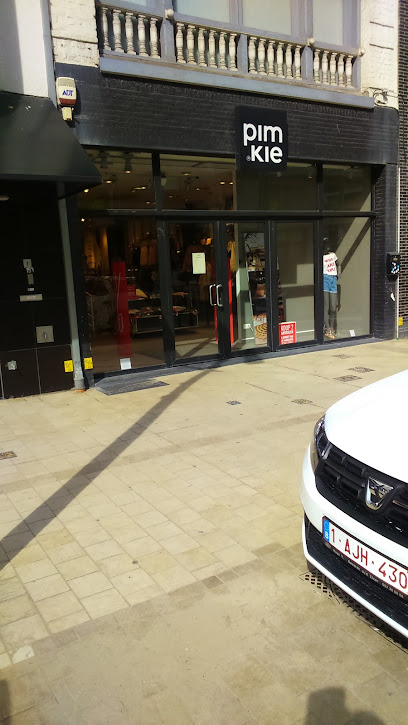
Hunkemöller De Panne
Discover the elegance of Hunkemöller De Panne, where fashion meets comfort in lingerie and women's clothing for all sizes.
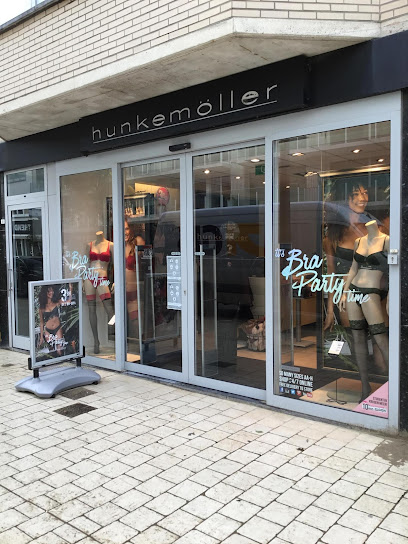
Superdry
Explore Superdry in De Panne for stylish apparel blending vintage Americana and Japanese-inspired designs, ideal for every fashion enthusiast.
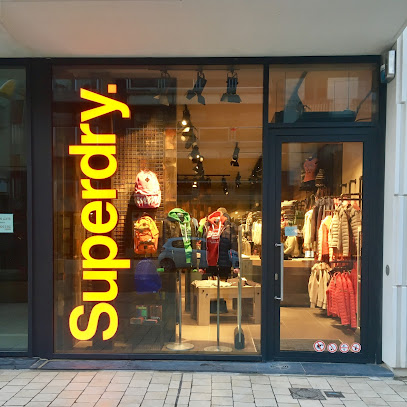
Acou
Explore Acou in De Panne for a unique shopping experience featuring trendy clothing and accessories that celebrate local and international fashion.
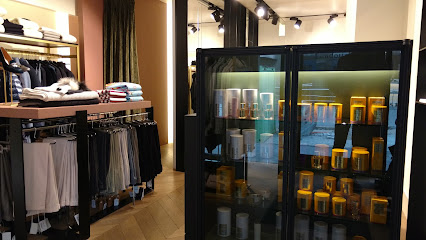
North Sea De Panne
Explore North Sea De Panne for chic clothing and stylish accessories in the heart of De Panne, Belgium. A fashion haven for every tourist!
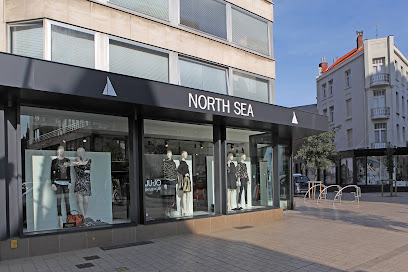
Woestijn Etienne - Doe het zelf Woestijn
Discover the charm of Woestijn Etienne, a boutique store in De Panne offering unique Belgian souvenirs and local specialties.
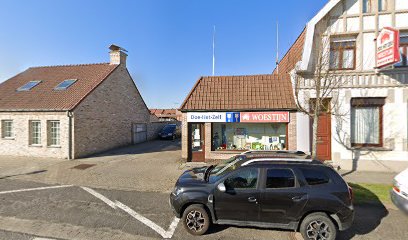
Fashion Fil Boutique
Discover the latest fashion trends at Fashion Fil Boutique in De Panne, where style meets sophistication in a charming coastal setting.
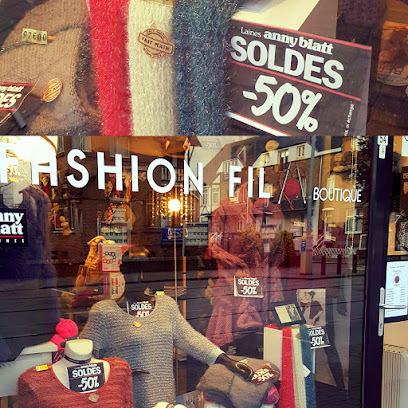
Le Grenier du Lin
Explore unique fashion and local craftsmanship at Le Grenier du Lin, a must-visit clothing store in De Panne, Belgium.
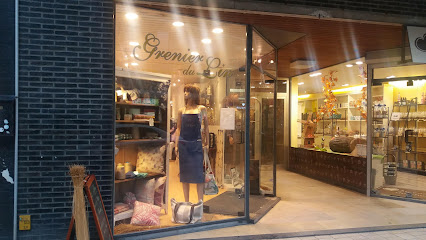
Eglantier
Discover unique home decor and essentials at Eglantier, a charming home goods store in De Panne, Belgium, offering a taste of local craftsmanship.
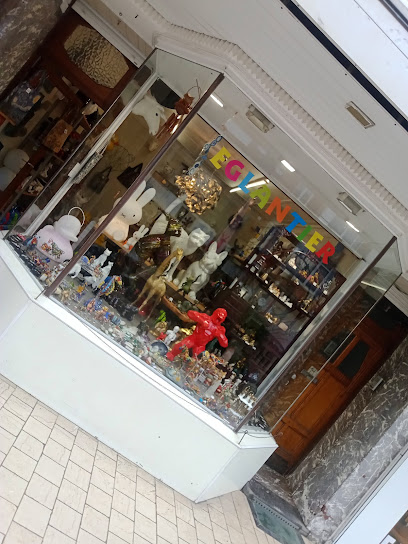
Essential bars & hidden hideouts
Oasis
Oasis in De Panne: Where Delicious Ice Cream Meets Exquisite Cocktails for a Fun and Relaxing Experience.
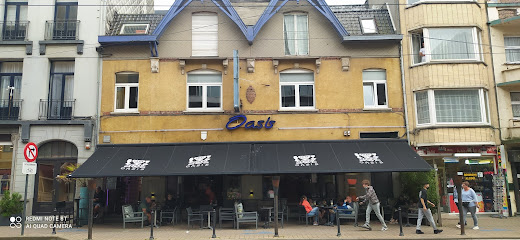
Aux Caves D'artois
Experience the flavors of Belgium at Aux Caves D'artois, a charming brasserie in De Panne offering local delicacies and a warm atmosphere.
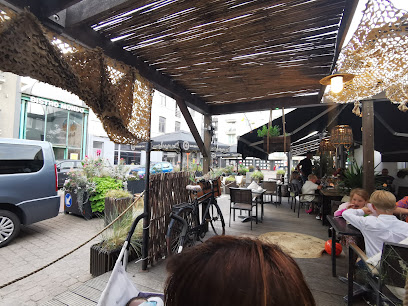
La Barraca
Experience the vibrant flavors of Spain at La Barraca, a top tapas bar and barbecue restaurant in the heart of De Panne.
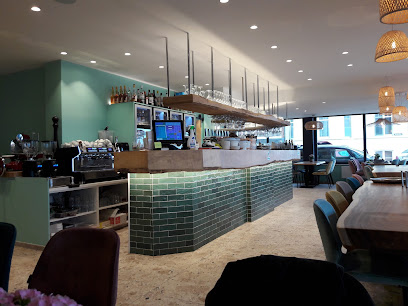
The Saloon - Mexican Streetfood/Steakhouse
Experience the unique blend of Mexican street food and classic steakhouse flavors at The Saloon in De Panne.
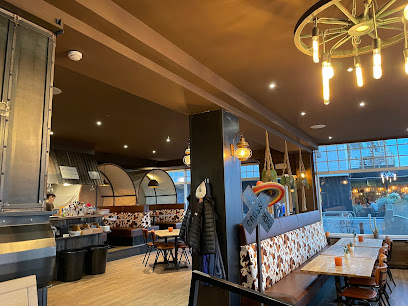
Perroquet 23
Discover the exquisite flavors and inviting atmosphere at Perroquet 23, a top restaurant in De Panne offering a delightful culinary experience.
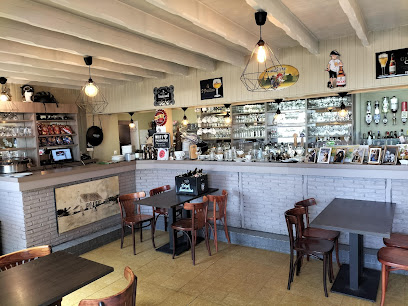
Clapotis
Experience the vibrant cocktail culture at Clapotis, the premier cocktail bar in De Panne, Belgium, offering stunning views and a lively atmosphere.
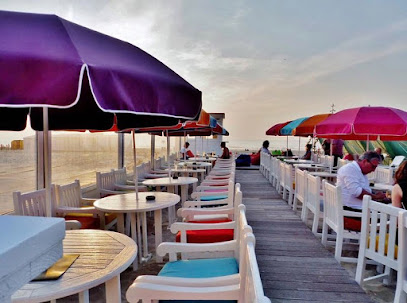
Dbar
Discover Dbar in De Panne - your ultimate destination for relaxation and local flavors in a cozy coastal setting.
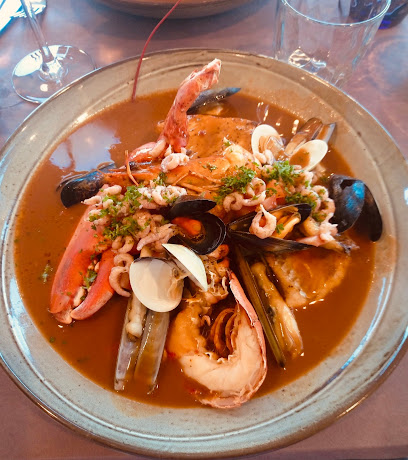
Boss Rodgers
Discover Boss Rodgers, a cozy pub in De Panne, offering a warm atmosphere and a taste of local Belgian brews.
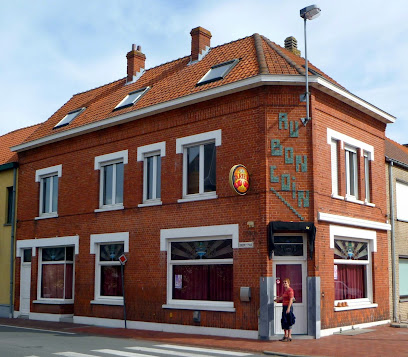
Havana De Panne
Discover the electrifying nightlife of Havana De Panne, where music and dancing create unforgettable memories in the heart of De Panne.
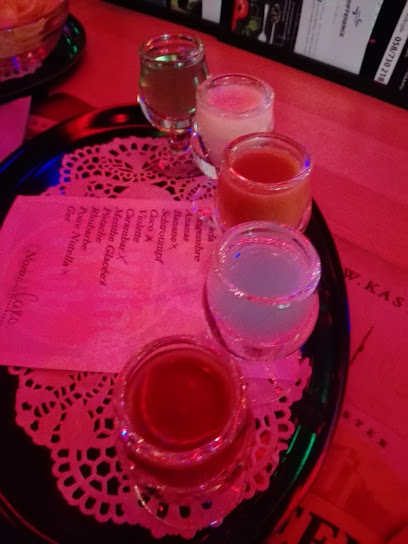
Coffee Bar
Experience the charm of Coffee Bar in De Panne, a cozy brasserie offering delightful coffee and pastries in a welcoming atmosphere.
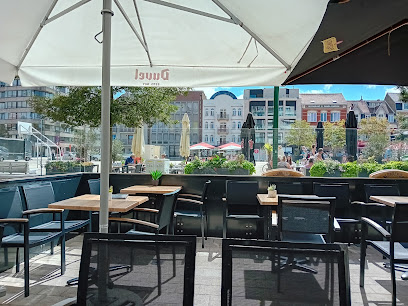
Shakerz Cocktailbar & Food & tapas
Discover Shakerz Cocktailbar & Food & Tapas in De Panne, where vibrant cocktails and delicious tapas create the perfect nightlife experience.
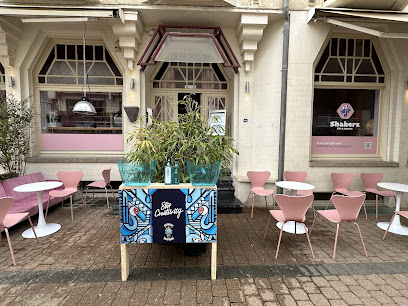
Kicks
Experience the coastal culinary delights at Kicks in De Panne, where fresh ingredients meet a vibrant atmosphere.
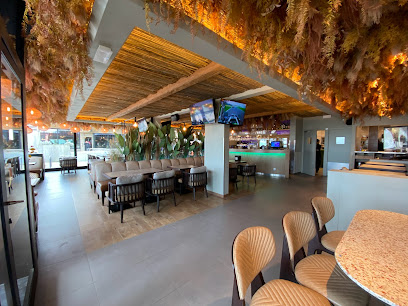
Switch
Discover the lively atmosphere of Switch, the top live music bar in De Panne, Belgium, where local talent and great drinks create unforgettable nights.
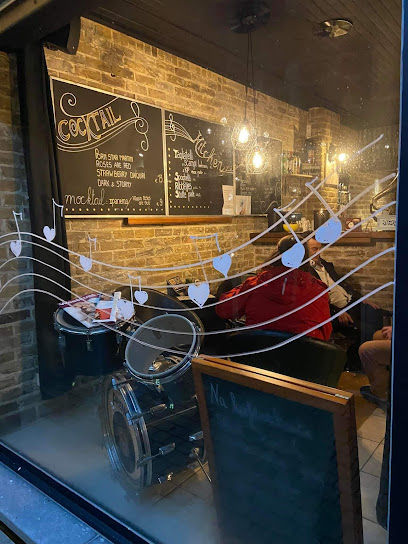
Fisher's Inn
Experience the vibrant atmosphere of Fisher's Inn in De Panne, where great drinks and lively entertainment await every night.
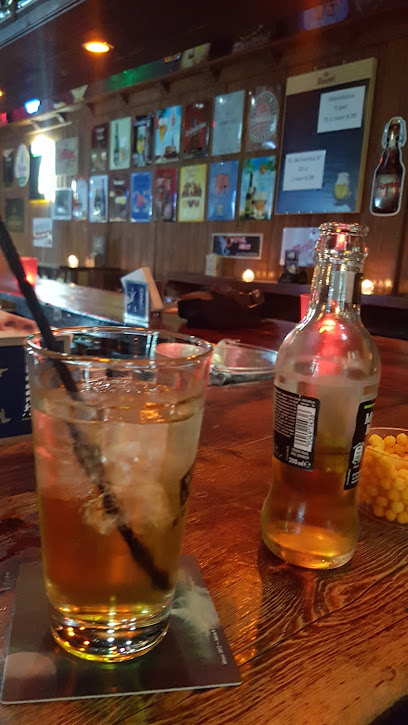
Local Phrases about De Panne
-
- HelloHallo
[ha-lo] - GoodbyeVaarwel
[vahr-vel] - YesJa
[yah] - NoNee
[nee] - Please/You're welcomeAlstublieft
[ahl-stu-bleeft] - Thank youDank u
[dahnk oo] - Excuse me/SorrySorry
[soh-ree] - How are you?Hoe gaat het met u?
[hoo gah-t het met oo] - Fine. And you?Goed. En met u?
[khoot. en met oo] - Do you speak English?Spreekt u Engels?
[spraykt oo eng-els] - I don't understandIk begrijp het niet
[ik buh-greyp het neet]
- HelloHallo
-
- I'd like to see the menu, pleaseIk zou graag de menukaart zien, alstublieft
[ik zow khrahkh deh meh-nu-kart seen, ahl-stu-bleeft] - I don't eat meatIk eet geen vlees
[ik ayt khayn vleys] - Cheers!Proost!
[prohst] - I would like to pay, pleaseIk zou graag willen betalen, alstublieft
[ik zow khrahkh vill-en buh-tah-len, ahl-stu-bleeft]
- I'd like to see the menu, pleaseIk zou graag de menukaart zien, alstublieft
-
- Help!Help!
[help] - Go away!Ga weg!
[gah vekh] - Call the Police!Bel de politie!
[bel deh poh-lee-see] - Call a doctor!Bel een dokter!
[bel ayn dokh-ter] - I'm lostIk ben verloren
[ik ben vahr-loh-ren] - I'm illIk ben ziek
[ik ben zik]
- Help!Help!
-
- I'd like to buy...Ik zou graag ... willen kopen
[ik zow khrahkh ... vill-en koh-pen] - I'm just lookingIk kijk alleen maar
[ik kayk a-leyn mahr] - How much is it?Hoeveel kost het?
[hoo-vel kost het] - That's too expensiveDat is te duur
[dat is tuh dur] - Can you lower the price?Kunt u de prijs verlagen?
[kunt oo deh preys vuh-rah-khun]
- I'd like to buy...Ik zou graag ... willen kopen
-
- What time is it?Hoe laat is het?
[hoo laht is het] - It's one o'clockHet is één uur
[het is ayn oor] - Half past (10)Half elf
[hahlf elf] - MorningOchtend
[okh-tend] - AfternoonMiddag
[mid-dahkh] - EveningAvond
[ah-vohnd] - YesterdayGisteren
[khis-teh-run] - TodayVandaag
[vahn-dahkh] - TomorrowMorgen
[mohr-khen] - 1Een
[ayn] - 2Twee
[tvay] - 3Drie
[dree] - 4Vier
[feer] - 5Vijf
[fayf] - 6Zes
[zehs] - 7Zeven
[zeh-ven] - 8Acht
[ahkht] - 9Negen
[nay-khen] - 10Tien
[teen]
- What time is it?Hoe laat is het?
-
- Where's a/the...?Waar is een/de...?
[vahr is ayn/de] - What's the address?Wat is het adres?
[vaht is het ah-dres] - Can you show me (on the map)?Kunt u mij dat laten zien (op de kaart)?
[kunt oo may daht lah-ten seen (op deh kart)] - When's the next (bus)?Wanneer is de volgende (bus)?
[vahn-er is deh vol-ghen-deh (bus)] - A ticket (to ....)Een ticket (naar ....)
[ayn tee-ket (nahr)]
- Where's a/the...?Waar is een/de...?
History of De Panne
-
De Panne began its transformation into a popular seaside resort in the late 19th century. The town's beautiful sandy beaches and dunes drew visitors seeking relaxation and health benefits from the sea air. The construction of the first hotels and villas started around this period, marking the beginning of De Panne as a tourist destination.
-
During World War I, De Panne played a crucial role as a refuge. The Belgian royal family, including King Albert I, Queen Elisabeth, and their children, resided in De Panne after the fall of Antwerp in 1914. The town also served as a base for the Belgian army and a center for medical care, with Queen Elisabeth personally involved in the establishment of a frontline hospital.
-
The Kusttram, the longest tram line in the world, runs along the Belgian coast and includes a stop in De Panne. Established in 1885, this tramway has been a vital means of transportation for both locals and tourists. It connects De Panne with other coastal towns, enhancing accessibility and boosting tourism.
-
The Dumont Quarter in De Panne is named after architect Albert Dumont, who designed many of the town's early 20th-century buildings. This area is characterized by charming cottages and villas with distinct architectural styles, reflecting the early development of De Panne as a seaside resort. The preservation of this quarter offers a glimpse into the town's architectural heritage.
-
The Westhoek Nature Reserve is one of the most significant dune areas in Belgium, located in De Panne. This protected area offers a unique landscape of dunes, grasslands, and wetlands, home to diverse flora and fauna. Established as a nature reserve in 1957, Westhoek provides opportunities for hiking, bird watching, and experiencing the natural beauty of the region.
-
Historically, De Panne was a small fishing village before it became a tourist destination. The town's connection to the sea is evident in its maritime heritage, including traditional fishing boats and techniques. Although the fishing industry has diminished over time, it remains an integral part of De Panne's cultural history.
-
Plopsaland De Panne is a popular theme park located in the town, opened in 2000. It is based on the characters and stories from Studio 100, a Belgian television production company. The park attracts families from all over Belgium and beyond, adding a modern dimension to De Panne's appeal as a holiday destination.
De Panne Essentials
-
De Panne is located on the southwestern coast of Belgium, near the French border. The nearest major airport is Brussels Airport (BRU), approximately 150 kilometers away. From Brussels, you can take a train to De Panne, which usually involves a transfer at Gent or Brugge. The total journey by train takes around 2 to 2.5 hours. Alternatively, you can drive from Brussels to De Panne, which takes about 1.5 hours via the E40 highway.
-
De Panne is a small town, and many attractions are within walking distance. The Coastal Tram (Kusttram) is a convenient way to travel along the Belgian coast, connecting De Panne with other coastal towns. Local buses are also available, and taxis can be easily hailed or booked in advance. For those looking to explore further afield, renting a bicycle or car is a good option.
-
The official currency in Belgium is the Euro (EUR). Credit and debit cards are widely accepted in most hotels, restaurants, and shops. However, it is advisable to carry some cash for smaller purchases or in places where card payments are not accepted. ATMs are readily available throughout De Panne.
-
De Panne is generally a safe destination for tourists. Standard precautions should be taken, such as avoiding poorly lit areas at night and keeping an eye on personal belongings in crowded places. There are no specific high-crime areas targeting tourists, but it's always best to stay vigilant and aware of your surroundings.
-
In case of emergency, dial 112 for immediate assistance, which covers police, fire, and medical services. The local police station and medical facilities are available in De Panne. It is recommended to have travel insurance that covers medical emergencies. For minor health issues, there are pharmacies in the town where you can purchase over-the-counter medications.
-
Fashion: Do dress comfortably and according to the weather. Belgium has a casual dress code, but avoid overly revealing clothing in public spaces. Religion: Do respect local customs and traditions. There are no strict religious dress codes, but it’s polite to dress modestly when visiting churches. Public Transport: Do be respectful and give up your seat to elderly passengers. Don’t eat or drink on public transport. Greetings: Do greet people with a handshake. A smile and a 'bonjour' or 'goede dag' go a long way. Eating & Drinking: Do try local delicacies and accept food offerings graciously. Don’t refuse hospitality, as it is considered impolite.
-
To experience De Panne like a local, visit the local markets where you can buy fresh produce and traditional Belgian goods. Engage with locals, as they are often friendly and willing to share stories about the town's history and culture. Don’t miss visiting the nature reserve 'De Westhoek' for a unique dune landscape experience. For a quintessential Belgian experience, enjoy some fresh seafood at one of the beachside restaurants.
Trending Landmarks in De Panne
-
Plopsaland De Panne
-
Nature Reserve of Westhoek
-
Provinciaal bezoekerscentrum Duinpanne
-
Pier Kloeffe
-
Museum Cabour Adinkerke
-
TTO Noordzee
-
Monument aan Leopold I
-
La Panne / De Panne
-
Westerpunt De Panne
-
Tourism De Panne
-
Oosthoekduinen
-
Beaufort Beeldenpark: De Drie Wijsneuzen - Harald Thys & Jos de Gruyter
-
De Panne Kerk
-
Monument der geallieerden
-
Beaufort beeldenpark: Christophorus - Gerhard Lentink
Nearby Cities to De Panne
-
Things To Do in Ostend-Bruges International Airport
-
Things To Do in Ostend
-
Things To Do in Ypres
-
Things To Do in De Haan
-
Things To Do in Blankenberge
-
Things To Do in Bruges
-
Things To Do in Zeebrugge
-
Things To Do in Kortrijk
-
Things To Do in Knokke-Heist
-
Things To Do in Lille
-
Things To Do in Tournai
-
Things To Do in Ghent
-
Things To Do in Aalst
-
Things To Do in Mons
-
Things To Do in Brussels










